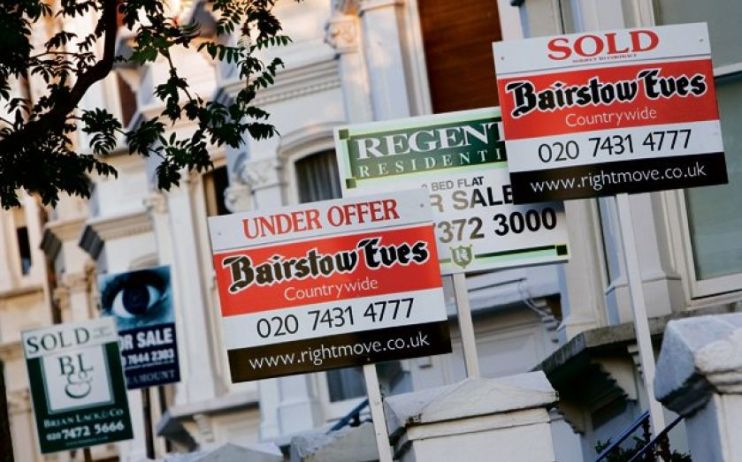Growth falters as UK house prices stuck in ‘Brexit limbo’

UK house prices’ rate of growth slipped in July, falling to a “modest” 0.3 per cent annual rise to stay below one per cent for the eighth month in a row, according to Nationwide’s latest data.
However, the 0.3 per cent month-on-month growth outstripped June’s 0.1 per cent to leave the average UK home worth £217,663.
Read more: UK house price growth hits seven-year low in the south
Robert Gardner, Nationwide’s chief economist, warned of “mixed signals” from the UK housing market, saying it is caught between Brexit uncertainty andfavourable economic conditions.
“Housing market trends will remain heavily dependent on developments in the broader economy,” he said.
“In the near term, healthy labour market conditions and low borrowing costs will provide underlying support, though uncertainty is likely to continue to exert a drag on sentiment and activity.”
Prolonged Brexit uncertainty clouds UK housing market
Jeremy Leaf, north London estate agent and a former Rics residential chairman, warned that the UK property market faces pressure amid Brexit uncertainty despite favourable conditions.
“The market is very much in limbo – on the one hand underpinned by near record low mortgage rates and improving affordability but on the other, not moving ahead as we might have expected,” he said.
Howard Archer, chief economic adviser to the EY Item Club, said that “while relatively modest”, July’s 0.3 per cent annual increase was actually the highest so far in 2019.
He added that London and the south east have dragged down the national picture with year-on-year falls of 0.7 per cent and 1.6 per cent respectively.
But ahead of the 31 October Brexit deadline uncertainty will continue to dampen buyer and seller appetites, he said.
“Uncertainty will weigh down on the economy over the next few months at least and hamper the housing market,” Archer said.
“Consequently, we suspect house prices will rise by no more than one per cent over 2019 on Nationwide’s measure.”
Economic conditions cannot bolster UK house prices forever
Nationwide said strong wage growth and record low unemployment have given the housing market a boost in a tough time.
But EY’s Archer warned that such conditions are unlikely to persist while the UK’s future outside of the EU is mired in unknowns.
“It looks questionable whether the labour market and earnings growth will sustain their recent strength as companies face a lacklustre domestic economy and significant Brexit, UK domestic political and global economic uncertainties,” he said.
“Employment growth has slowed markedly recently, although earnings growth was robust in May.”
‘Limited’ benefit from avoidance of 29 March Brexit
Meanwhile Archer warned that UK house prices have only slightly benefited from Brexit being delayed from 29 March and strong economic conditions.
“Housing market activity got some help from the avoidance of a disruptive Brexit at the end of March, but the overall benefit has been relatively limited,” he said.
“Improved consumer purchasing power and record high employment has also recently been helpful for the housing market.”
Buyers await Boris Johnson’s stamp duty changes
Nationwide’s Gardner said new buyer enquiries “have increased a little” but property transaction numbers have slowed.
Buyers acting now are benefiting from slowing buy-to-let landlords activity, Leaf said, and are also “looking beyond Brexit” to take advantage of lower prices.
Read more: UK house prices surge 5.7 per cent in June
However, many others are waiting for much-anticipated measures to slash stamp duty under Prime Minister Boris Johnson.
“One of the reasons for the lack of activity is clearly political uncertainty but there is no doubt that talk of changes to stamp duty is also weighing on perspective sellers’ minds,” Leaf said.
Main image credit: Getty